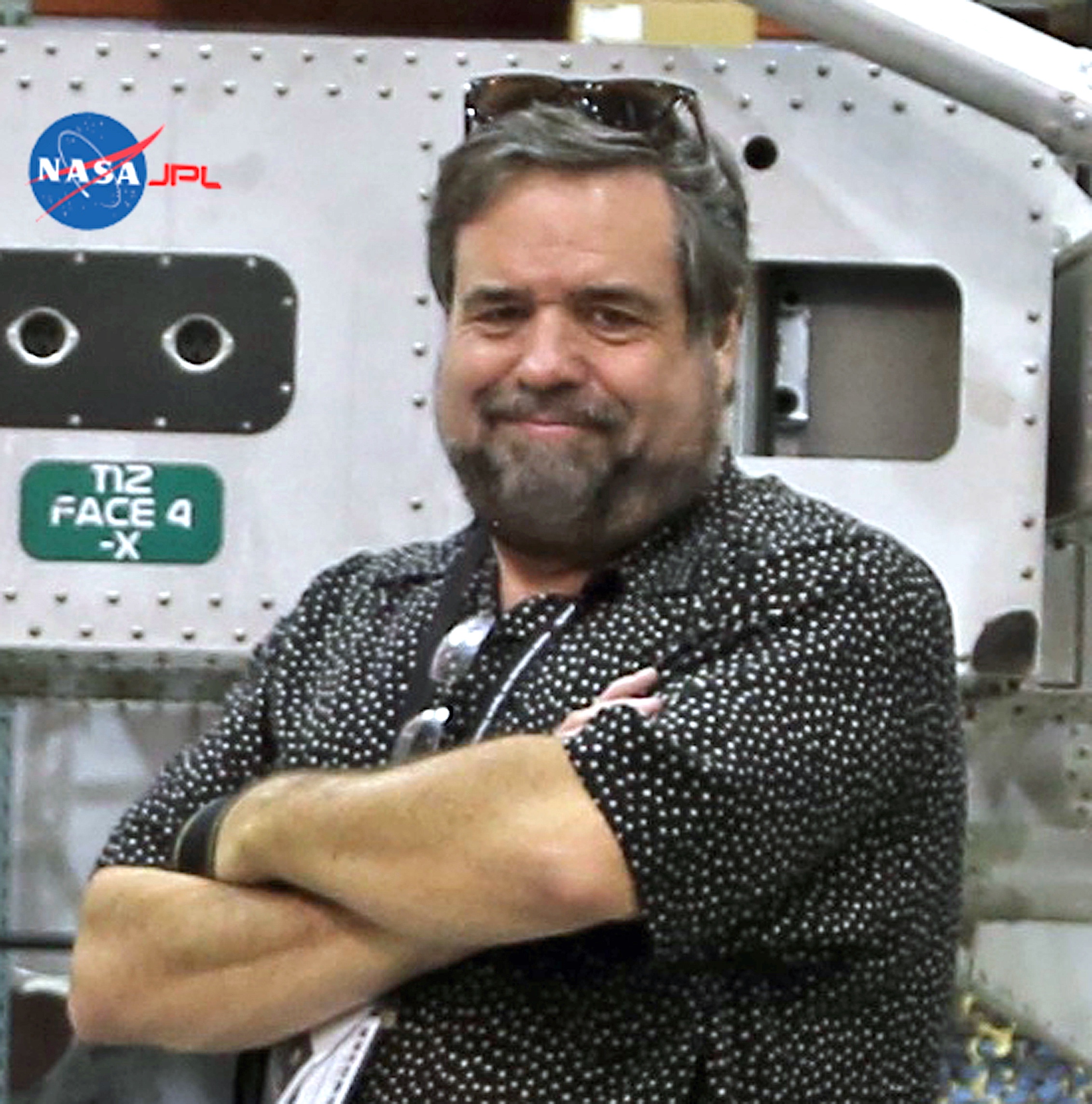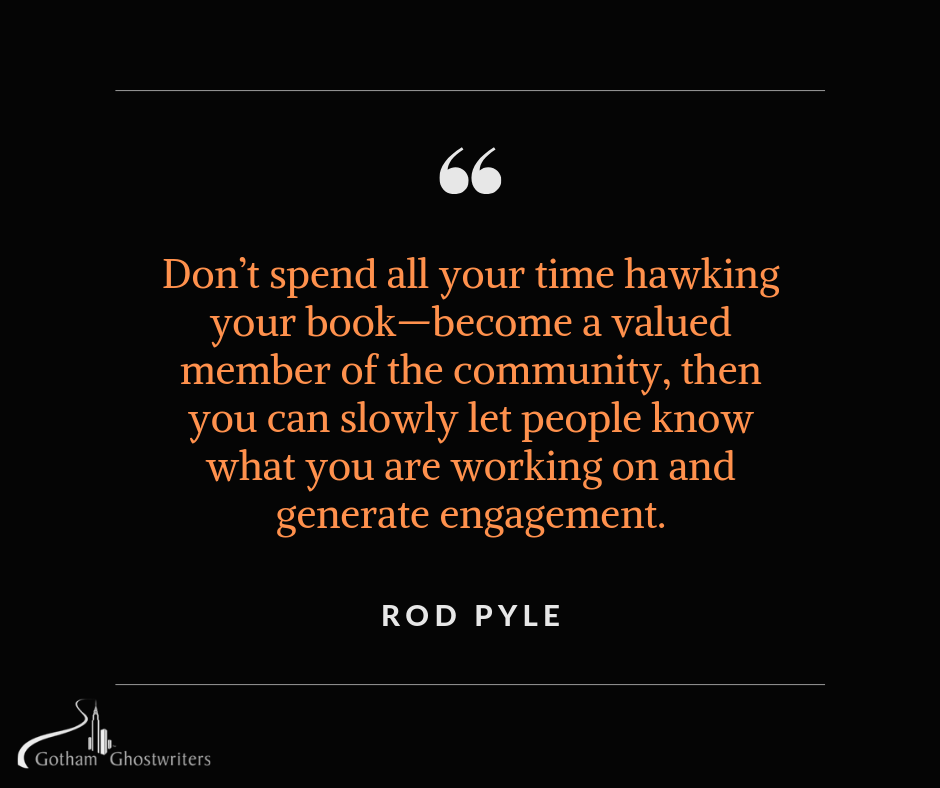
Rod Pyle is a space author, journalist and historian who has authored 15 books on space history, exploration and development for major publishers that have been published in ten languages. He is the Editor-in-Chief for the National Space Society’s quarterly print magazine Ad Astra, and his frequent articles have appeared in Space.com, LiveScience, Futurity, Huffington Post, Popular Science, Caltech’s E&S magazine, and WIRED. He has written extensively for NASA’s Jet Propulsion Laboratory and Caltech, and authored the Apollo Executive Leadership Program for NASA’s Johnson Space Center. New book releases for 2019 include Interplanetary Robots, Space 2.0 (with a foreword by Buzz Aldrin), and First On the Moon (also with a foreword by Aldrin) which sold out on the day of its release. Rod’s previous Apollo books Missions to the Moon (foreword by Gene Kranz) and Destination Moon are being republished for 2019.
Rod is a sought-out public speaker, giving frequent keynotes throughout the country. He appears on national radio and television, with regular slots on KFI/Los Angeles, and WGN/Chicago (both market leaders), as well as popular podcasts and radio in numerous other markets. Rod hosts a podcast called Cool Space News on iHeart Radio, and appears on PBS’s Between the Lines and C-SPAN’s Book TV regularly. He holds an MA from Stanford University and a BFA from the Art Center College of Design. He lives in Alhambra, California. Learn more about him at PyleBooks.com.
Tell us about your writing journey. How did you begin writing, and how did you break into the industry? When did you know you could make a career out of it?
After some rather uninspired forays into fiction as a young man, I started writing TV commercials and institutional films and videos in the 1990s. By 1993 I had moved into television documentaries with the History Channel, and continued working in TV through the late 2000s. I quickly found, however, that trying to summarize a subject as complex as the space race or a major part of World War II in 44 minutes (the length of a cable TV show) was not terribly rewarding, and decided to attempt getting a book deal. By 2003 I was engaged in my first traditionally published book project for Carlton Books UK and the Smithsonian. By 2011 I had acquired a wonderful agent, John Willig of Literary Services Inc., and the pace of my book commissions picked up substantially. To date I have written 15 traditionally published books plus three more for NASA.
What is it about astronomy and space exploration that has compelled you to write so frequently about it?
I was born about the same time as the space race, and grew up impassioned about spaceflight. Whether robotic or human, I thrilled to the rapid pace of development in the 1960s and 1970s. From 1968 through 1972, missions to explore the Moon were departing Florida as often as every two months. It was a magical time to be a spectator, and I knew then that I wanted to be some small part of the adventure.
What special considerations are required for collaborating on a writing project?
I have not collaborated often—but when I have, it can be challenging to shift from the profoundly solo role of traditional book authoring to a more collaborative one. But learning how to collaborate is critical, for even the role a good editor plays in forming your book is a collaborative one. I look forward to more collaborations in the future.

What’s the most important thing to know about publishing before you start pitching your work?
Today I am still writing books and articles, but also serve as the Editor-in-Chief of a spaceflight magazine, Ad Astra. From this vantage point I have come to understand the role—and responsibilities of—editors much more fully, which has helped me to better provide what they need. For nonfiction books, the first critical step is a solid proposal, written in the generally accepted format that is well documented in a number of books that are widely available. It’s important to stick with the “thirds” format—one-third describing the book’s content and why it’s important, one-third why you are the only person in the world they should consider to write this book, and one-third competition analysis (other titles in various formats) and your marketing platform. This is what publisher expects and needs to make an informed decision. This process also helps you to better clarify and define the book you plan to write.
What does your writing routine look like? How do you stay productive and overcome blocks?
I have never experienced anything akin to writer’s block. Early on, I did find that I needed long patches of time that were clear of distractions to dive deep into creating a manuscript, but with many years of practice can now write productively in whatever time slots are available. This level of self-discipline has proved invaluable. I am also a big believer in “over-writing”— simply getting the words into a document, and then editing later. This has often resulted in manuscripts that were as much as 35-40 percent over-length, but the material that is later cut can always be saved for another book or for articles.
What strategies do you focus on when cultivating your platform?
I listen to smart publishers’ publicists! Beyond that, I have worked to cultivate a solid social media platform, but have much more work to do in that area. Since authors are now required to provide many months of marketing support for no pay (often spelled out in the contract), it can be a challenge to find the time to build your platform, but it’s an endeavor that must never stop. It is simply too important. Your laptop and smartphone are your best allies for frequent and intelligent posting in online venues. Build your “tribe”—find out where your core audience spends their time and join in on the conversation. Don’t spend all your time hawking your book—become a valued member of the community, then you can slowly let people know what you are working on and generate engagement.
If you could go back and change anything about your writing career, is there anything you would choose to do differently?
I would have started earlier. I delayed my entry into book authoring primarily out of fear, and that is no reason to avoid doing what you love, and what you must. There is simply nothing else as rewarding as writing—I say this because I tried a number of career paths before becoming a published writer, and despite the financial rewards (which were, in all cases, beyond that which most of us can earn as writers early on), I always felt as if I was simply marking time until I had the courage to make the change into writing full time.
What’s your best piece of advice for someone looking to be a full-time writer?
Concentrate on an area that drives your passions and inspires you—otherwise, even writing can be drudgery. Always put in far more effort than you are being paid to do (if you are earning at all—many do not in the first years). Take any assignment that seems legitimate and don’t get hung up on earnings. Do not be resistant to editorial feedback—there is no surer avenue to unemployment than being “difficult.” Be flexible and open to valid criticism, and develop a thick skin—reviewers are not always warm-and-fuzzy in their assessment of your work. Study and be open to non-traditional publishing arrangements—increasingly, books are coming to market via unconventional means.
What are you working on next?
I continue to edit and write for Ad Astra, and produce articles for a number of other venues. I have a book project in the works, but will be writing this one without a commission (a first for me) to assure that I have the time to do it properly. Traditional publishers operate on increasingly compressed schedules, resulting in compromises. I am also seeking additional editorial projects, periodical assignments and other partnerships.
Do need a specialist like Rod? Pitch it to us below, and we’ll work to match you with a writer with the expertise you need.
